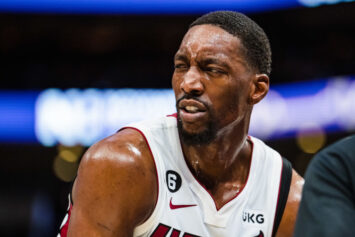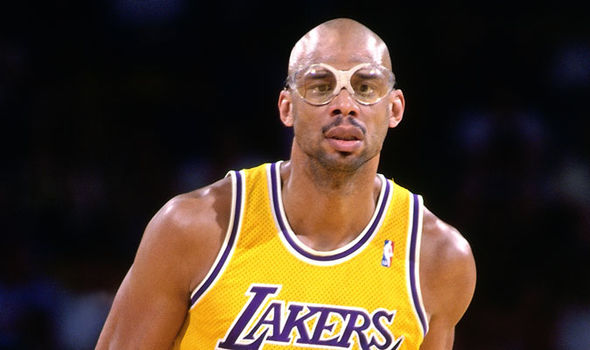The New York Knicks are playing better than they have in years, but the franchise is still haunted by the memory of that Game 7 NBA Finals loss to the Houston Rockets in 1994.
It’s been three decades of misery. John Starks’ all-time anemic shooting performance still cuts Knicks fans like a knife. Some still wake up in cold sweats all these sunrises later.
Pat Riley’s inability to remove Starks from such a crucial game when he clearly didn’t have an ounce of game in him, despite having two very capable shooters on the bench in Rolando Blackman and second-year sharp-shooter Hubert Davis, remains one of the low moments in New York sports history.
John Starks Should Have Been Benched
The streaky Starks set a miserable tone in Game 1 after flying in from his uncle’s funeral. We will never know how badly the death affected his game, but Starks had been dominant over his previous five games, averaging 21 points and seven assists, while connecting on 49 percent of his shots and 45 percent of his triples
When the dust settled and New York’s championship hopes were crushed, Starks had gone 2-for-18 from the field and 0-for-11 from beyond the arc in what to this day remains the worst clutch performance in NBA history by a lead guard. (James Harden is grateful.)
In the fourth quarter, Starks couldn’t sink a single shot, and, to top it off, he missed three crucial three-pointers in the last minute, including an airball. His overall performance during the series was less than spectacular and he failed in key spots. Starks also missed a potential game-tying shot in Game 6 with just seconds remaining.
That shooting performance and the Knicks’ subsequent failure to ever get to the mountaintop was the beginning and the end for one of the NBA’s flagship franchises, operating in what was once known as “The World’s Most Famous Arena.”
Pat Riley’s Biggest Sin: Why Not Bench Starks In Game 7?
Even those who’d never doubted Riley knew something was off and began second-guessing his choice to keep Starks on the floor.
Ex–Knicks coach Red Holzman, watching the game from the stands, thought, “I wonder if maybe this would be the time for us to take a shot with [backup Rolando] Blackman,” as he described to writer Chris Herring in the book “Blood In the Garden: The Flagrant History of the 1990s New York Knicks.”
Holzman, a shrewd X’s and O’s coach, was thinking what every New York Knicks fan on earth was screaming at the television as they watched their championship hopes wash down the drain without even putting up the correct strategical fight.
“After a while, his shot looked more like a medicine ball, with how much he was struggling to shoot it. All of us on the bench — players, coaches — kept waiting, thinking Pat [Riley] was going to use [Rolando] Blackman,” opposing guard Scott Brooks told Herring.
So when Blackman never got subbed into Game 7— despite the fact that he enjoyed a career-best scoring average against the Rockets and was an 18 point-per-game scorer for his 13-year career — it was Riley’s biggest sin.
Pat Riley Finally Admits He Screwed Knicks
It took “The Godfather” years to admit that not making a substitution for his struggling guard was “the biggest mistake I ever made,” according to Herring.
Riley reportedly even sent a number of handwritten letters to Blackman over the years. But Blackman says he’s never written back.
If Riley’s heart was content about the decision, he would never have tried to apologize to Ro Black. But as the true story develops, we find out that Riley had beef with Blackman because the veteran pushed back against Riley’s decision to ban wives from traveling during the Houston series.
Pat Riley Was Ego Trippin’ With The Knicks?
This new insight into that bizarre Game 7 is even more of an indictment of Riley and how he handled that decisive game. His ego cost New York City more than you can ever imagine.
John Starks’ rag to riches story was tarnished. Patrick Ewing’s legacy is forever tainted and diminished because of his lack of rings. Rolando Blackman never got his opportunity to help the Knicks win. His scoring ability and efficiency is just what the Knicks needed.
As far as NYC hoops is concerned, the Knicks had a few moments with Jeff Van Gundy, but never came as close as they did the season Riley let Starks shoot New York right out of a title.
Riley remains one of the most hated men in New York city sports history because he did what he needed to do everywhere except New York. A man with those championship credentials wouldn’t let his team sink because he didn’t know how to substitute at the most important moment of the last half century.
So, not benching Starks at some point, even for a stretch, was very perplexing to many Knicks fans for a long time. This inside information on the petty spat between the veteran Blackman and Riley only infuriates Knicks fans even more.
“I don’t know if that caused some interior backlash or played a role in [Riley’s] choice,” says Blackman, who hadn’t played in the series at all prior to Game 7.
Riley Closed the Deal Everywhere Else
Riley left and went on to Miami where he swooped in and won another championship, this time with a ready-made Shaq and Wade combo. Then he was kicked upstairs and is given incredible credit for Miami making a couple of NBA Finals over the next two decades.
He’s a god in the sport, and when it comes to the debacle in New York and the way he tied his ship to John Starks, gambled with a guy who once bagged groceries in the biggest moment in the proud and prideful New York Knicks history, that decision was the turning point for the entire franchise.
Pat Riley played with the New York Knicks franchise. His ego had inflated to a point where just being asked a question by a respected veteran player made proving who the boss was more important than bringing a starving New York fan base the championship it deserves.
Pat Riley is a Hall of Famer and one of the most influential figures in NBA history, but the job he did in Game 7 of the 1994 NBA finals and the way he jerked Knicks fans out of a title will forever be a huge stain on his career, that he admittedly regrets as he approaches 80 years of age and reflects on the wins and losses that have made him an icon.



